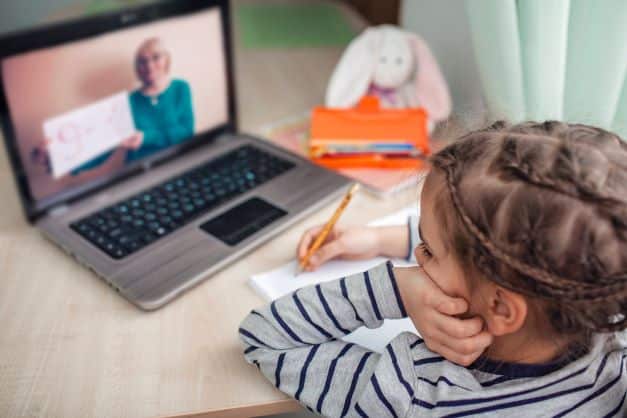More than one third of year's learning lost in pandemic – study
Monday 30th Jan 2023, 3.07pm

According to the paper, A systematic review and meta-analysis of the evidence on learning during the COVID-19 pandemic, ‘The pooled effect…implies that students lost out on about 35% of a normal school year’s worth of learning…This confirms initial concerns substantial learning deficits would arise out of the pandemic.’
In particular, the paper finds, Maths learning has been affected as well as children from disadvantaged social backgrounds, ‘The pandemic has exacerbated educational inequalities between children from different socio-economic backgrounds, which were already large before the pandemic.’
Many people hoped that, after children, teachers, and parents had time to adjust to the restrictions imposed during the pandemic, children would be able to recover the learning lost…Worryingly…the children [we can observe] have largely been unable to recover these learning deficits
Dr Bastian Betthäuser
Lead study author, Dr Bastian Betthäuser, an associate member of Oxford’s Department of Social Policy and Intervention (DSPI), points out, ‘Many people hoped that, after children, teachers, and parents had time to adjust to the restrictions imposed during the pandemic, children would be able to recover the learning lost…Worryingly…the children [we can observe] have largely been unable to recover these learning deficits.’
He adds, ’On the positive side, teachers, children and parents were successful in preventing early learning deficits from growing even larger as the pandemic continued.’
Study co-author Dr Per Engzell, an associate member of Nuffield College, says, ’The first months of the pandemic were very disruptive for learning progress. Teachers, parents and children were not prepared for the closure of schools. On top of school closures, children’s ability to learn is likely to have been reduced by lockdowns and the associated economic uncertainties of many families.’
Children in poorer countries lost out on more learning than their peers in richer countries…The pandemic is likely deepening this learning crisis and reversing past progress
Dr Anders Bach-Mortensen
According to the study, the pandemic also reinforced learning inequality at the global level. Co-author Dr Anders Bach-Mortensen, the Carlsberg Foundation visiting fellow at DSPI, notes, ’Children in poorer countries lost out on more learning than their peers in richer countries. Low-income countries were already struggling with a learning crisis before the pandemic. The pandemic is likely deepening this learning crisis and reversing past progress.’
The study urges policy action to address setbacks in children’s learning. Dr Betthäuser says, ‘Some countries have already invested substantial resources into such policies, but we need more evidence to understand their effectiveness. If these policies prove effective, and if countries continue to invest in them, the pandemic could be a window of opportunity to improve the education that we provide for our children and to reduce educational inequality.’
The paper can be found here: https://doi.org/10.1038/s41562-022-01506-4

